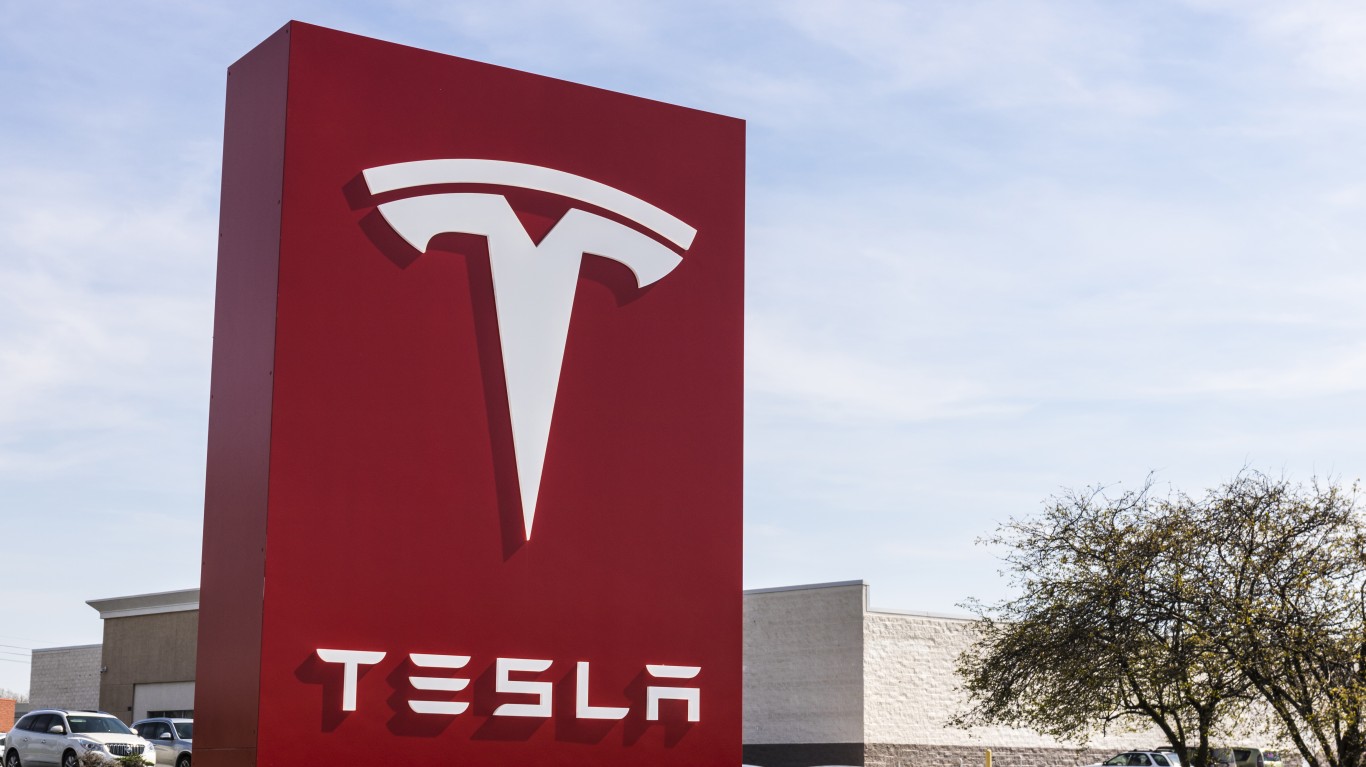
Another day, another 52-week high for Tesla Inc. (NASDAQ: TSLA). Over the weekend, the company announced a $3,000 price cut to its Model Y crossover, dropping the price for the Performance version to $59,900. The Model Y Long-Range Dual Motor basic version also got a $3,000 price reduction to $49,900.
But a price cut is not all that unusual. What is unusual is talk that Tesla will join the S&P 500. Tesla has become the 10th largest company in the United States, overtaking Procter & Gamble. The company is already the most valuable automaker in the world.
Valuable enough to join the ranks of the S&P 500? While there are still plenty of doubters about Tesla’s soaring valuation, there are more than plenty of believers, even at nearly $1,800 a share.
CNBC cited Larry McDonald of Bear Trap Reports, who thinks investors are bidding up the shares before Tesla joins the index. Pushing the price up now gives Tesla greater weight in the index, forcing index funds and exchange-traded funds to pay higher prices while buying even more shares of Tesla stock. According to McDonald, “Then the hot money exits, leaving the indexes holding the bag.”
Of course, Tesla may not get invited to join the S&P index and the air could go out from under the shares just as quickly as it was pumped in.
Another possibility is a short squeeze. According to S3 Analytics, as of July 9, Tesla was on the brink of becoming the first stock ever to reach $20 billion in short interest. About 9.5% of the company’s stock was short, and the borrowing fee for those shares was a mere 0.3%.
As it becomes clearer and clearer to short sellers that Tesla’s stock is not going to drop, more shares will be covered. For the year to date, S3 Analytics reported net mark-to-market losses of more than $18 billion for Tesla shorts. Short covering will drive Tesla’s share price even higher.
Tesla’s Model Y was introduced to the market just last year, and while it’s highly unusual for carmakers to drop the price of a new model so quickly, Tesla is an unusual automaker. Because it does not sell through dealers, the company can cream off the premium pricing that comes with the first units off the line instead of letting dealers harvest the bounty.
As Fred Lambert at Electrek points out, the price drop on the Model Y “shows why as a consumer you shouldn’t buy the early production of a new Tesla vehicle.” First units have more quality issues due to production ramping. Once production hits its stride and the first order backlogs are cleared, Tesla begins reducing the price of its vehicles.
In case you didn’t know, Tesla delivered nearly 91,000 vehicles in the second quarter, about 20,000 more than analysts expected. So there is some impact from actual auto manufacturing.
Tesla stock traded at a new 52-week high of $1,794.99 earlier Monday morning but afterward pulled back a bit to $1,734.96 (up about 12% for the day). The stock’s 52-week low is $211.00, and the consensus 12-month price target is $766.47.
Thank you for reading! Have some feedback for us?
Contact the 24/7 Wall St. editorial team.




